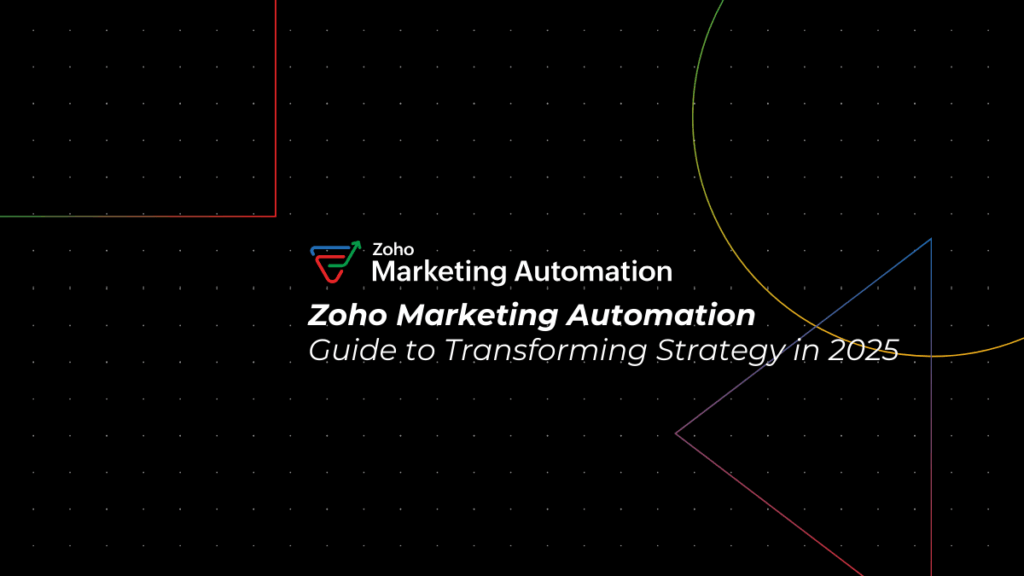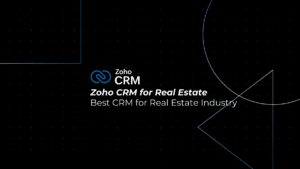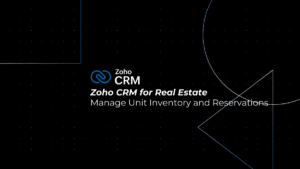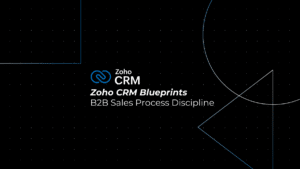Marketing automation has revolutionized how businesses connect with their customers, and Zoho Marketing Automation stands out as a powerful solution that’s transforming marketing strategies across industries. In today’s competitive digital landscape, marketers need sophisticated tools that can streamline campaigns, nurture leads effectively, and deliver personalized experiences at scale. This comprehensive guide explores why Zoho Marketing Automation has become an essential game-changer for modern marketers looking to maximize their ROI and drive sustainable growth.
Table of Contents
ToggleWhat Is Zoho Marketing Automation?
Zoho Marketing Automation is a comprehensive digital marketing platform that enables businesses to automate repetitive marketing tasks, nurture leads through personalized journeys, and analyze campaign performance with advanced analytics. As part of the extensive Zoho ecosystem, this platform seamlessly integrates with other Zoho applications, creating a unified business management experience.
The platform combines email marketing, lead management, social media automation, and customer journey mapping into one cohesive solution. Unlike standalone marketing tools, Zoho Marketing Automation provides end-to-end campaign management capabilities that adapt to businesses of all sizes, from startups to enterprise-level organizations.
Key Components of Zoho Marketing Automation
The platform encompasses several core functionalities that work together to create comprehensive marketing campaigns:
Email Campaign Management: Create, schedule, and optimize email campaigns with drag-and-drop builders, A/B testing capabilities, and advanced personalization options.
Lead Scoring and Nurturing: Automatically score leads based on behavior and engagement, then nurture them through targeted content sequences.
Customer Journey Mapping: Design complex automation workflows that guide prospects through personalized experiences based on their actions and preferences.
Social Media Integration: Manage and automate social media posting across multiple platforms while tracking engagement metrics.
Analytics and Reporting: Access detailed insights into campaign performance, customer behavior, and ROI metrics through customizable dashboards.
The Evolution of Marketing Automation
Marketing automation has evolved significantly from simple email schedulers to sophisticated platforms that can predict customer behavior and optimize campaigns in real-time. Zoho Marketing Automation represents the latest generation of these tools, incorporating artificial intelligence and machine learning to enhance decision-making processes.
Traditional marketing approaches required manual intervention at every stage, from lead qualification to campaign optimization. Modern marketing automation platforms like Zoho have transformed this landscape by enabling marketers to create intelligent systems that respond dynamically to customer interactions.
Why Traditional Marketing Methods Fall Short
Manual marketing processes create several challenges that modern businesses cannot afford to ignore:
Scalability Limitations: Manual processes become increasingly difficult to manage as businesses grow and customer databases expand.
Inconsistent Messaging: Without automation, maintaining consistent communication across all touchpoints becomes nearly impossible.
Resource Intensive: Manual campaign management requires significant time and human resources that could be better allocated to strategic initiatives.
Limited Personalization: Creating personalized experiences for thousands of customers manually is practically impossible.
Delayed Response Times: Manual follow-up processes often result in missed opportunities due to delayed responses.
Core Features That Make Zoho Marketing Automation Exceptional
Advanced Email Marketing Capabilities
Zoho Marketing Automation excels in email marketing with features that go far beyond basic newsletter functionality. The platform offers sophisticated segmentation tools that allow marketers to create highly targeted campaigns based on customer behavior, demographics, purchase history, and engagement patterns.
The drag-and-drop email builder includes responsive templates that automatically adapt to different devices and email clients. Advanced personalization features enable dynamic content insertion, ensuring each recipient receives relevant messaging that resonates with their specific interests and needs.
A/B testing capabilities allow marketers to optimize subject lines, content, send times, and call-to-action buttons systematically. The platform automatically identifies winning variations and can implement successful elements across future campaigns.
Intelligent Lead Management
Lead management within Zoho Marketing Automation goes beyond simple contact storage. The platform employs sophisticated scoring algorithms that evaluate prospect behavior across multiple touchpoints, including website visits, email engagement, social media interactions, and content downloads.
Progressive profiling features gradually collect additional information about leads through strategically placed forms and surveys, building comprehensive customer profiles without overwhelming prospects with lengthy questionnaires.
The platform’s lead nurturing capabilities enable marketers to create complex automation workflows that deliver the right content at the optimal time, gradually moving prospects through the sales funnel based on their readiness to purchase.
Multi-Channel Campaign Orchestration
Modern customers interact with brands across multiple channels, and Zoho Marketing Automation recognizes this reality by providing comprehensive multi-channel campaign management capabilities. The platform enables synchronized messaging across email, SMS, social media, and web notifications.
Social media automation features allow marketers to schedule posts across Facebook, Twitter, LinkedIn, and other platforms while maintaining consistent brand messaging. The platform monitors social engagement and can trigger automated responses based on specific interactions or mentions.
Web personalization capabilities enable dynamic content delivery on websites based on visitor behavior and profile information, creating seamless experiences that bridge online and offline touchpoints.
Comprehensive Analytics and Reporting
Data-driven decision making is crucial for marketing success, and Zoho Marketing Automation provides extensive analytics capabilities that offer deep insights into campaign performance and customer behavior.
Real-time dashboards display key performance indicators including open rates, click-through rates, conversion rates, and revenue attribution. Advanced reporting features enable marketers to track customer journeys from initial awareness through final purchase, identifying the most effective touchpoints and content types.
Custom report builders allow businesses to create specific analytics views that align with their unique KPIs and business objectives. Integration with Zoho Analytics provides even more sophisticated data visualization and predictive analytics capabilities.
Benefits of Implementing Zoho Marketing Automation
Increased Operational Efficiency
Zoho Marketing Automation dramatically improves operational efficiency by automating repetitive tasks that traditionally consumed significant time and resources. Marketers can focus on strategic initiatives while the platform handles routine activities like email scheduling, lead scoring, and follow-up sequences.
Campaign setup time is reduced through template libraries and automation workflows that can be easily duplicated and modified for different segments or products. The platform’s intuitive interface minimizes the learning curve, enabling teams to achieve productivity gains quickly after implementation.
Enhanced Customer Experience
Personalization at scale becomes achievable with Zoho Marketing Automation, enabling businesses to deliver relevant, timely communications that enhance customer experience. The platform’s behavioral tracking capabilities ensure that customers receive content that aligns with their interests and purchase stage.
Automated welcome series, birthday campaigns, and anniversary acknowledgments create positive touchpoints that strengthen customer relationships without requiring manual intervention. Dynamic content capabilities ensure that returning customers see updated information and relevant offers based on their previous interactions.
Improved Lead Quality and Conversion Rates
Lead scoring and nurturing features within Zoho Marketing Automation significantly improve lead quality by identifying prospects who are most likely to convert. Automated lead nurturing ensures that prospects receive consistent, valuable content that addresses their specific pain points and questions.
Progressive profiling gradually builds comprehensive customer profiles, enabling more targeted messaging and better sales handoff processes. Integration with Zoho CRM ensures that sales teams receive well-qualified leads with complete interaction histories.
Better ROI and Revenue Attribution
Zoho Marketing Automation provides clear visibility into campaign ROI through comprehensive tracking and attribution modeling. Marketers can identify which campaigns, channels, and content types generate the highest revenue, enabling more effective budget allocation.
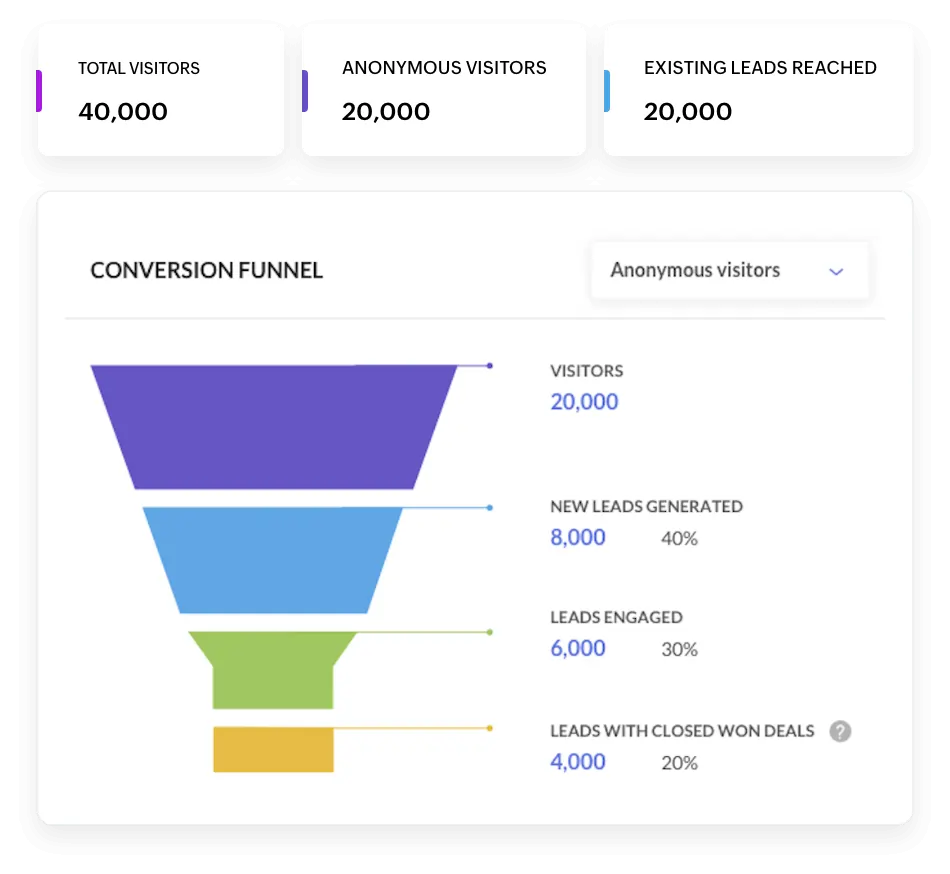
Customer lifetime value tracking helps businesses understand the long-term impact of their marketing investments. Revenue attribution features connect marketing activities directly to sales outcomes, providing concrete evidence of marketing’s contribution to business growth.
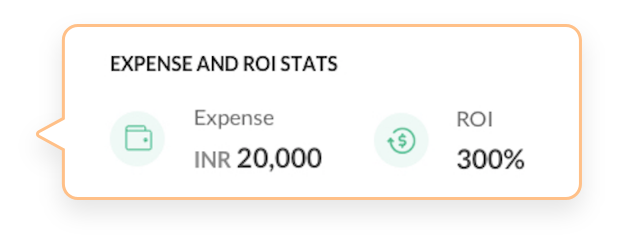
Integration Capabilities with Zoho Ecosystem
Seamless CRM Integration
The integration between Zoho Marketing Automation and Zoho CRM creates a unified customer management experience. Lead information flows seamlessly between platforms, ensuring that sales and marketing teams have access to complete customer profiles and interaction histories.
Automated lead handoff processes trigger when prospects reach specific scoring thresholds or complete particular actions. Sales teams receive notifications with detailed lead context, enabling more effective and personalized sales conversations.
Business Intelligence Integration
Zoho Marketing Automation integrates with Zoho Analytics to provide advanced business intelligence capabilities. Custom dashboards combine marketing metrics with sales and customer service data, offering comprehensive views of customer relationships and business performance.
Predictive analytics features help identify trends and opportunities, enabling proactive campaign adjustments and strategic planning. Data visualization tools make complex metrics accessible to stakeholders at all levels of the organization.
E-commerce Platform Connectivity
For businesses with online stores, Zoho Marketing Automation integrates with major e-commerce platforms including Shopify, WooCommerce, and Zoho Commerce. These integrations enable automated campaigns based on purchase behavior, cart abandonment, and customer lifecycle stages.
Product recommendation engines leverage purchase history and browsing behavior to suggest relevant items through email campaigns and website personalization. Inventory-based campaigns automatically promote products that need attention or seasonal items.
Best Practices for Zoho Marketing Automation Success
Strategic Planning and Goal Setting
Successful implementation of Zoho Marketing Automation begins with clear strategic planning and goal definition. Businesses should identify specific objectives such as lead generation targets, conversion rate improvements, or customer retention goals before configuring automation workflows.
Audience segmentation strategies should align with business objectives and customer personas. Well-defined segments enable more targeted messaging and better campaign performance. Regular strategy reviews ensure that automation workflows remain aligned with evolving business needs.
Content Strategy Development
Content remains the foundation of effective marketing automation. Zoho Marketing Automation users should develop comprehensive content strategies that address different stages of the customer journey and various audience segments.
Content calendars should align with automation workflows, ensuring that relevant materials are available when needed. Regular content audits help identify gaps and opportunities for improvement. User-generated content and customer testimonials can be incorporated into automation sequences to enhance credibility.
Testing and Optimization Protocols
Continuous testing and optimization are essential for maximizing Zoho Marketing Automation performance. A/B testing should be systematic and focus on elements that have the greatest potential impact on campaign objectives.
Regular performance reviews should examine not just individual campaign metrics but also overall customer journey effectiveness. Optimization efforts should consider both quantitative metrics and qualitative feedback from customers and sales teams.
Industry-Specific Applications
B2B Marketing Excellence
Zoho Marketing Automation excels in B2B marketing environments where complex sales cycles and multiple decision-makers require sophisticated nurturing strategies. Account-based marketing features enable personalized campaigns for high-value prospects and customers.
Lead scoring models can incorporate company-level information such as industry, company size, and technology stack to prioritize prospects more effectively. Integration with LinkedIn and other professional networks enhances B2B targeting capabilities.
E-commerce Optimization
E-commerce businesses benefit significantly from Zoho Marketing Automation’s behavioral tracking and transaction-based automation capabilities. Cart abandonment sequences, post-purchase follow-ups, and replenishment reminders drive additional revenue from existing customers.
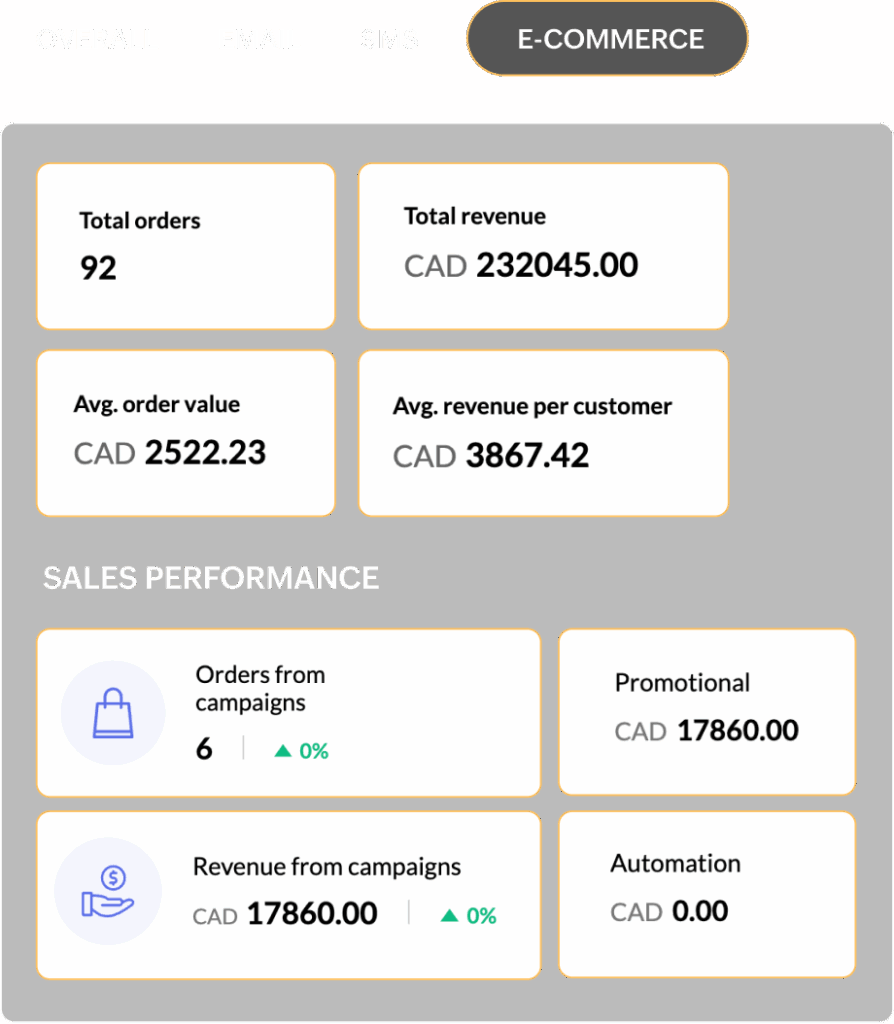
Product recommendation engines leverage machine learning to suggest relevant items based on purchase history and browsing behavior. Seasonal campaigns and inventory management automation help optimize product promotion timing.
Service-Based Business Growth
Service-based businesses use Zoho Marketing Automation to nurture long-term client relationships and encourage repeat engagements. Automated client onboarding sequences ensure consistent experiences and reduce manual handoffs between departments.
Educational content sequences position service providers as industry experts while nurturing prospects through extended decision-making processes. Client feedback automation helps gather testimonials and identify expansion opportunities.
Measuring Success with Zoho Marketing Automation
Key Performance Indicators
Success measurement for Zoho Marketing Automation should encompass both marketing-specific metrics and broader business outcomes. Email engagement rates, lead quality scores, and conversion rates provide tactical insights into campaign performance.
Revenue attribution and customer lifetime value metrics demonstrate strategic impact. Customer satisfaction scores and retention rates indicate whether automation enhances or detracts from customer experience.
Long-term Impact Assessment
Long-term success evaluation should consider operational efficiency gains, team productivity improvements, and scalability achievements. Zoho Marketing Automation should enable marketing teams to handle increased workloads without proportional staff increases.
Customer relationship quality and brand perception metrics help assess whether automation maintains the personal touch that customers value. Regular surveys and feedback collection ensure that automation supports rather than replaces meaningful customer connections.
Future of Marketing Automation with Zoho
Artificial Intelligence Integration
Zoho Marketing Automation continues evolving with enhanced AI capabilities that improve predictive analytics, content optimization, and customer behavior analysis. Machine learning algorithms increasingly automate optimization decisions that previously required manual intervention.
Natural language processing capabilities enable more sophisticated email personalization and chatbot interactions. Predictive lead scoring becomes more accurate as AI systems learn from historical data and outcome patterns.
Enhanced Personalization Capabilities
Future developments in Zoho Marketing Automation will likely focus on even more granular personalization options, including real-time content optimization based on current context and behavior.
Cross-channel personalization will become more sophisticated, ensuring consistent experiences regardless of how customers choose to interact with brands. Privacy-compliant personalization will balance effectiveness with regulatory requirements.
Conclusion
Zoho Marketing Automation’s comprehensive feature set, seamless integrations, and continuous innovation make it an essential tool for businesses committed to marketing excellence. Organizations that invest in proper implementation and ongoing refinement will find that the platform delivers significant returns through improved efficiency, enhanced customer experiences, and measurable revenue growth.
For businesses considering marketing automation implementation or looking to upgrade their current capabilities, Zoho Marketing Automation offers a compelling solution that grows with organizational needs while delivering immediate value. The investment in marketing automation today will determine competitive positioning and growth potential in tomorrow’s increasingly automated business environment.
Contact PyramidBITS for a free consultation to discuss how we can help implement and optimize Zoho Marketing Automation for your unique business requirements.
